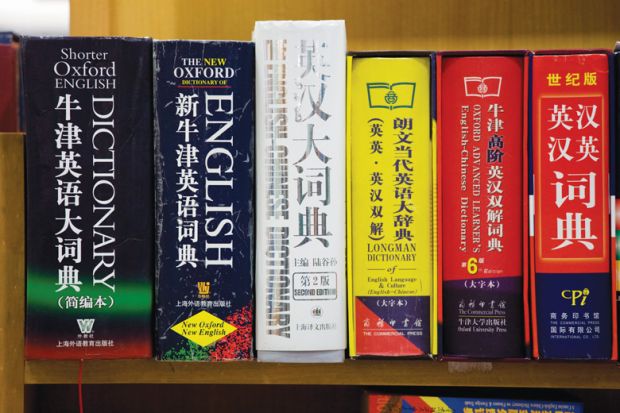Language experts have hit out at a professor’s “unwarranted” and “premature” dismissal of linguistic bias against academics who speak English as a second language.
Ken Hyland, professor of applied linguistics at the University of Hong Kong, ruffled feathers in academia in March when he branded the idea of discrimination against non-native English speakers by publishers as a “myth” that was used by some academics to explain why their substandard research was not published in top-ranked journals.
There was “little evidence” to support the “pervasive” notion that many papers were rejected solely on account of their authors’ less-than-perfect English, said Professor Hyland in a paper published in the Journal of Second Language Writing.
But five leading linguistics scholars have taken issue with Professor Hyland’s dismissal of the contention that academic publishing is rigged in favour of those with English as a first language.
Writing in the same journal, linguists from the universities of Cologne, Oxford, New York Abu Dhabi, Kansas, Indiana and Korea state that Professor Hyland’s failure to find any proof of linguistic bias did not mean that it did not exist.
Nor did the fact that numerous non-native English speakers are accepted for publication each year mean that concerns over bias were overblown, the authors add.
Such a “straw man” argument is “comparable to the argument that racism is not a concern in [the] United States...because the country has a black president”, they add.
"That argument is fallacious because one or several examples of success do not invalidate a broad pattern of disadvantage,” they say.
Professor Hyland’s “overly optimistic” assertion that decisions to accept or reject papers are taken by journals mainly on the basis of content rather than language also ignored a wealth of evidence related to unconscious biases held by reviewers, claims the article, titled “Is linguistic justice a myth? A response to Hyland (2016)”.
“Reviewers and editors of academic article submissions…may be unable to acknowledge or even recognise [their] bias,” it explains.
“Outside of an academic context, non-native-accented speech has been shown to be judged as less credible-sounding than native-accented speech…it is not unreasonable to expect this unconscious bias to extend to written academic text as well,” it adds.
Responding to the critique, Professor Hyland says that he realised he was “treading on sacred ground” when he branded linguistic bias a “myth”, but felt that it was “important to at least initiate a debate on something that has largely been unquestioned”.
Those who pushed claims of linguistic injustice, which had deterred some academics from submitting papers and unfairly damned scrupulously fair editors, had a duty to “substantiate them with hard evidence”, he adds, saying that it was “not for debunkers to find counterevidence”.
The linguists’ paper “simply repeats a lot of the well-rehearsed arguments we have seen before, supported by untested assumptions and instinctive reflex rather than data”.
“As a result, their paper fails to take the debate forward and ultimately, after some 4,000 words, ends up…with a call for more research”.
Register to continue
Why register?
- Registration is free and only takes a moment
- Once registered, you can read 3 articles a month
- Sign up for our newsletter
Subscribe
Or subscribe for unlimited access to:
- Unlimited access to news, views, insights & reviews
- Digital editions
- Digital access to THE’s university and college rankings analysis
Already registered or a current subscriber?







